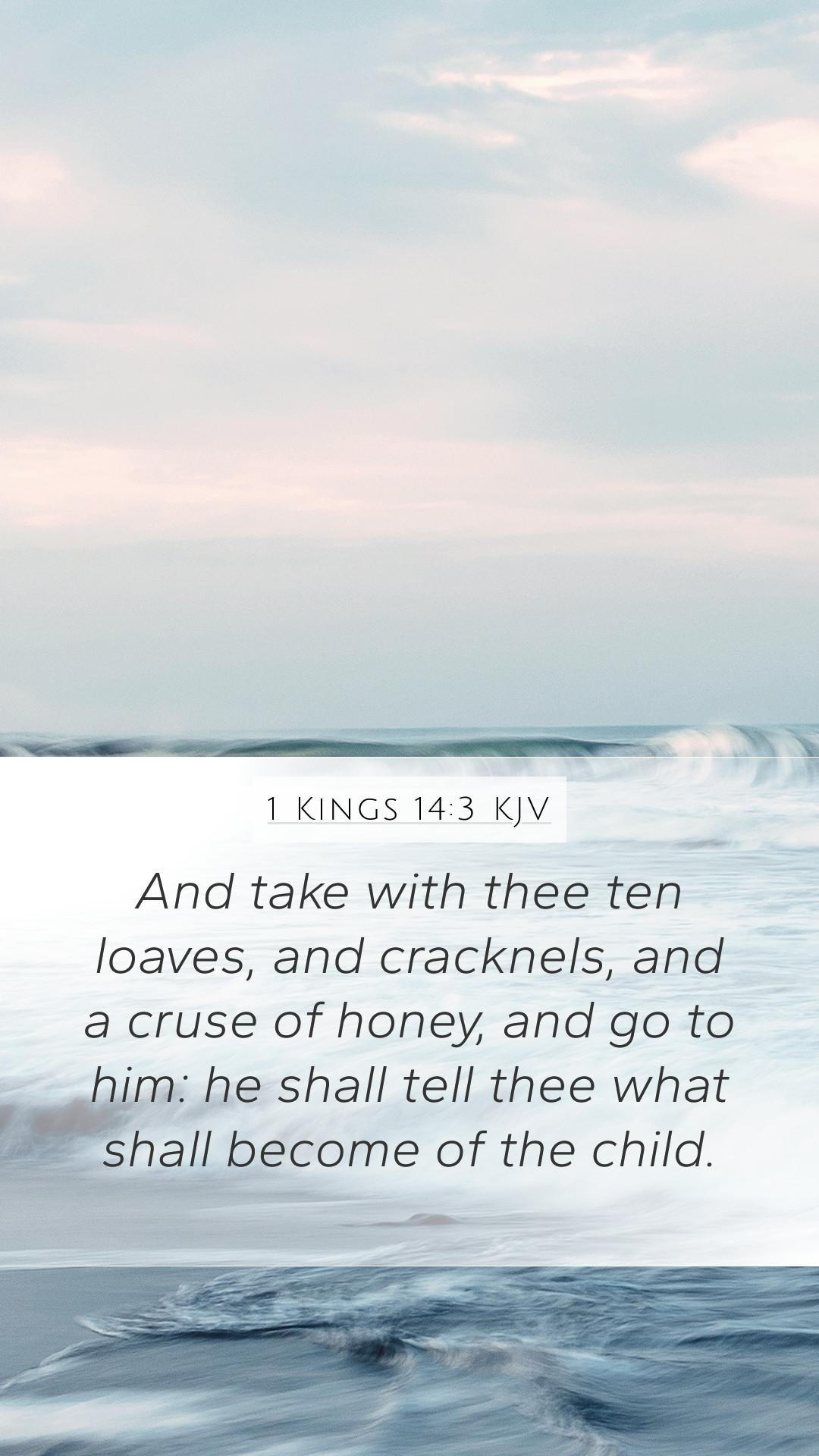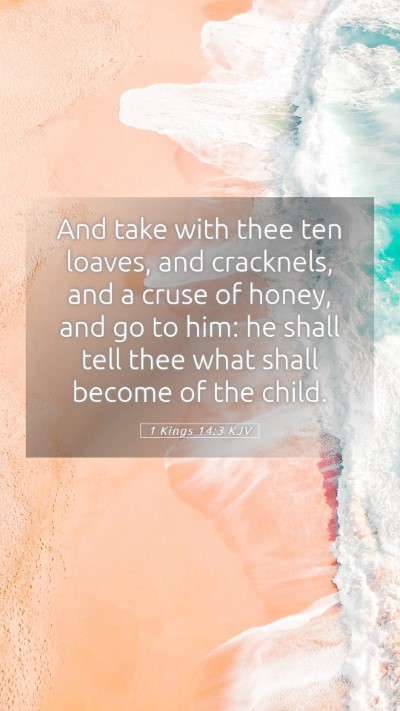Bible Verse Commentary for 1 Kings 14:3
Verse: "And take with thee ten loaves, and cracknels, and a cruse of honey, and go to him: he shall tell thee what shall become of the child." (1 Kings 14:3)
Understanding 1 Kings 14:3
This verse depicts a moment of intrigue and desperation in the story of Jeroboam, king of Israel. When his son falls ill, Jeroboam seeks guidance about his fate from the prophet Ahijah. This verse illustrates the intersection of faith, politics, and the divine.
Contextual Overview
The historical backdrop is essential for understanding this passage. After Solomon's reign, the kingdom of Israel became divided, leading Jeroboam to govern the northern tribes. Jeroboam's decision to send his wife to Ahijah reflects not only his anxiety about his son but also his struggle for legitimacy as a ruler.
Bible Verse Meanings
- Symbolism of Offerings: The items Jeroboam's wife is instructed to take can be seen as symbols of tribute and reverence, seeking favor from the prophet. This act indicates both acknowledgment of the prophet’s status and an underlying plea for mercy.
- Role of the Prophet: Ahijah's role in this verse signifies the prophet's power in conveying God’s will and the importance of divine guidance in critical situations.
- Illness and Divine Purpose: The mention of Jeroboam's son suggests the intertwining of personal tragedy with national destiny, a recurring theme in biblical narratives.
Bible Verse Interpretations
Commentators like Matthew Henry and Albert Barnes emphasize the weight of Jeroboam’s actions. Henry notes that even as king, Jeroboam relies on a prophet for understanding his family's plight, demonstrating human vulnerability. Barnes adds that the items brought are not merely gifts but indicators of Jeroboam's acknowledgment of divine authority, as he seeks an answer regarding his son’s fate.
Practical Applications
This verse provides several teachings for today:
- Seeking Divine Guidance: Just as Jeroboam sought Ahijah's counsel, readers are encouraged to seek spiritual wisdom through prayer and guidance in challenging times.
- The Importance of Acknowledging Authority: Recognizing spiritual leaders and their role in imparting wisdom can help believers navigate life's trials.
- The Intersection of Personal and Public Life: This narrative reflects how personal issues can impact broader societal contexts, relevant to both rulers and individuals today.
Historical Context of 1 Kings 14:3
Historical insights provide depth to Jeroboam’s plight. He was initially promised by the prophet Ahijah that he would become king over Israel (1 Kings 11:31). However, he faced the challenge of living up to that promise amidst the complexities of leadership and divine judgment.
Cross References
This verse relates to several other scriptures that illuminate its themes:
- 1 Kings 11:31: The prophecy regarding the division of the kingdom.
- 2 Chronicles 12:14: The account of Jeroboam’s reign and actions.
- Amos 3:7: The role of prophets in conveying God's messages.
Conclusion
1 Kings 14:3 serves as a profound reminder of the intertwining paths of human anguish and divine purpose. It exemplifies the necessity of seeking wisdom in times of distress and recognizing the significance of spiritual advisors.
SEO Keywords Utilization
- Bible verse meanings and interpretations found in 1 Kings 14:3 present an opportunity for deeper bible study insights.
- Understanding Scripture equips believers with the true meaning of Bible verses, fostering stronger faith.
- This verse encourages groups to explore bible study topics related to seeking divine guidance and acknowledgment of spiritual authority.


